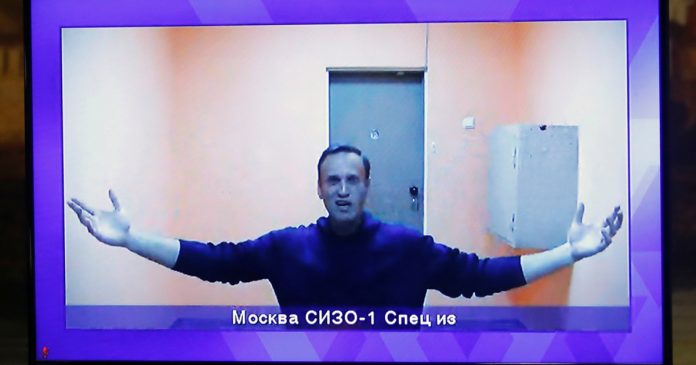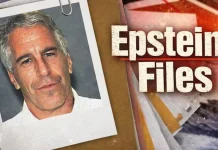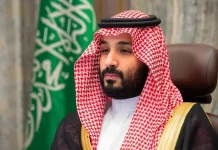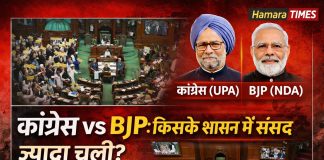[ad_1]
A Russian court has rejected opposition leader Alexey Navalny’s appeal against his arrest while authorities arrested several of his allies and issued warnings to social media companies.
Thursday’s developments came after tens of thousands swarmed the streets in more than 100 Russian cities last weekend demanding his release.
Speaking to court via video link from jail, Navalny denounced criminal proceedings against him as part of the government’s efforts to intimidate the opposition.
“You won’t succeed in scaring tens of millions of people who have been robbed by that government,” he said.
His lawyers said Navalny would appeal against the ruling to keep him in custody, the Interfax news agency reported.
After the ruling was handed down, Navalny said to the judge: “Everything was clear to me before the start of the court hearing, thank you.”
The 44-year-old Navalny, the most well-known critic of President Vladimir Putin’s government, was arrested on January 17 upon his return from Germany, where he spent five months recovering from nerve-agent poisoning that he blames on the Kremlin. Russian authorities have rejected the accusations.
Navalny was jailed for 30 days on request by Russia’s prison service, which charged that he had violated probation terms from a suspended sentence on a 2014 money-laundering conviction, which he rejected as politically driven.
He now also faces accusations in two separate criminal probes.
The Moscow Region Court on Thursday rejected his appeal against the arrest.
Al Jazeera’s Aleksandra Godfroid, reporting from Moscow, said Navalny used his chance to speak during Thursday’s hearing to deliver a “political speech” aimed at boosting his supporters’ morale.
“In essence, he said he is not surprised by the lack of law,” she said. “He also said that the whole idea behind this [process] is to scare him, his supporters and anyone that objects.”
Navalny’s brother arrested
During the court hearing, Navalny’s defence argued he was undergoing rehabilitation in Germany and so was unable to register with authorities as required by probation terms during the period. His lawyers also contested his arrest, charging that due process was repeatedly violated.
The detention of Navalny’s brother Oleg, his top ally Lyubov Sobol, Dr Anastasia Vasilyeva from the Navalny-backed Alliance of Doctors and Maria Alyokhina from the Pussy Riot punk collective comes as authorities try to stem another wave of protests set for Sunday.
All four were detained for 48 hours as part of a criminal probe into alleged violations of coronavirus regulations during the weekend’s protests.
The overnight detentions of Navalny’s allies came after more than a dozen searches of apartments and offices of his family, associates and supporters in connection to the ongoing probe into violations of coronavirus restrictions during the weekend protests. Those sites included Navalny’s apartment, where police arrested his brother, and a rented apartment where Navalny’s wife, Yulia, has been living.
Putin’s spokesman Dmitry Peskov said the searches and detentions were a legitimate part of police efforts to investigate the alleged violations during Saturday’s rallies.
“Law enforcement agencies are doing their job,” Peskov said in a conference call with reporters. “There were numerous violations of Russian laws, and law enforcement agencies are at work.”
Russian prosecutors on Thursday also issued warnings to Facebook, Google, Twitter, TikTok and Russian social networks demanding they block calls for more protests.
“The state doesn’t want the social networks to become a platform for promoting such illegal actions,” Peskov said.
Asked if their refusal to remove such content could prompt Russian authorities to block them, Peskov responded it would be up to relevant government agencies to consider a response.
“All pros and cons will be weighed and, if necessary, measures envisaged by the law will be taken,” he said.
Earlier this week, Russia’s state communications watchdog Roskomnadzor said it would fine Facebook, Instagram, Twitter, TikTok, YouTube and two Russian social networks for their failure to block calls on minors to join Saturday’s protests.
Al Jazeera’s Godfroid said the Kremlin was moving quickly to try and quash further protests over Navalny’s detention, warning any such demonstrations would be illegal.
“The authorities are not sitting idle, they have already started warning that January 31 is not a date for people to join these rallies,” she said.
“They have also started warning social [media] networks, telling them to take down any content that calls for people to join the protests on Sunday.”
Growing protests
Also on Thursday, Russia’s Investigative Committee said it opened a criminal probe against Navalny’s top strategist Leonid Volkov, accusing him of encouraging minors to participate in unauthorised rallies. Volkov, who currently stays abroad, rejected the charges.
In a challenge to Putin two days after Navalny’s arrest, his organisation released an extensive video report on a palatial seaside compound allegedly built for the president. It has been viewed more than 98 million times, further stoking discontent.
Demonstrations calling for Navalny’s release took place in more than 100 cities across the nation last Saturday, a strong show of rising anger towards the Kremlin. Nearly 4,000 people were reportedly arrested at those protests and some were handed fines and jail terms.
Navalny fell into a coma while on board a domestic flight from Siberia to Moscow on August 20. He was transferred from a hospital in Siberia to a Berlin hospital two days later.
Labs in Germany, France and Sweden, and tests by the Organization for the Prohibition of Chemical Weapons, established that he was exposed to the Soviet-era Novichok nerve agent.
Russian authorities have refused to open a full-fledged criminal inquiry, citing a lack of evidence that Navalny was poisoned.
Navalny’s arrest and the harsh police actions at the protests have brought wide criticism from the West and calls for his release.
Some analysts have said Navalny would be looking to make the most of the apparent spike in anti-Kremlin sentiment provoked by his detention.
“What Alexey Navalny wants to do now is to prepare for a situation when he … can become a real contender for power,” said Alexander Baunov, a senior fellow at the Carnegie Moscow Center think-tank.
[ad_2]
Source link











